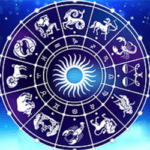
February 4 is World Cancer Day, a global initiative led by Union for International Cancer Control (UICC) that aims to unite organizations, governments and individuals in the fight against cancer and to save life and improve quality of life by raising awareness and education about the disease.
A truly global event taking place every year on 4 February, World Cancer Day unites the world’s population in the fight against cancer.
At Kcancer, our commitment on World Cancer Day 2018 is to create awareness on cancer prevention, diagnosis, and treatment. Here are the 10 facts about cancers:
- There are about 200 different types of cancers.
- The most cancers are: lung, breast, colorectal, prostate, and stomach cancers.
- The most common cancers in men are: prostate, lung, colorectal, stomach, and liver cancers.
- The most common cancer in women are: breast, colorectal, lung, cervical, and stomach cancers.
- Worldwide, there are 14.1 million people diagnosed with cancers every year.
- Worldwide, there are 8.8 million people died of cancers every year.
- Childhood cancers are the leading causes of death under age of 15.
- 5 to 10% cancers have genetic link.
- At least 50% cancers can be preventable.
- Tobacco use is the most important risk factor for cancer and is responsible for approximately 22% of cancer deaths.
Cancer is not one disease, but is the word refer to more than 200 different diseases, which affect any part of the body. Cancers are characterized by the uncontrolled growth of cells that invade and damage the body’s normal tissues.
Cancer are common diseases. Overall, one-third of women and one-half of men are expected to develop cancer in their life time.
As matter of fact, at any time and in any human body there are cancer cells. However, in a healthy human body the immune system has mechanism of eliminating cancer cells, thus prevent cancer development.
Many different factors can play a role in cancer development, such as smoking, diet, and environmental exposures to harmful substances etc. Viral and bacterial infections also can lead to certain cancers, such as the hepatitis virus in liver cancer, Helicobacter pylori in stomach cancer, and the HPV virus in cervical cancer. Knowing these risk factors and taking preventive procedure to avoid these factors.
Just as cancer affects people in different ways, all people have the power to take various actions to reduce the impact that cancer has on individuals, families and communities.

World Cancer Day 2018 is a reminder that how everyone – as a collective or as individuals – can do their part to reduce the burden of cancer.
World Cancer Day 2108 is a chance to reflect on what you can do, make a pledge and take action. Whatever you choose to do make a difference to the fight against cancer.
We are proud to join with the global community to advance the fight against cancer. Cancer is still responsible for millions of untimely deaths each year and profoundly affects the lives of those diagnosed and their loved ones. We must all work together to ensure our collective work reaches the millions of patients affected by cancer around the world on World Cancer Day 2018 and every day!

